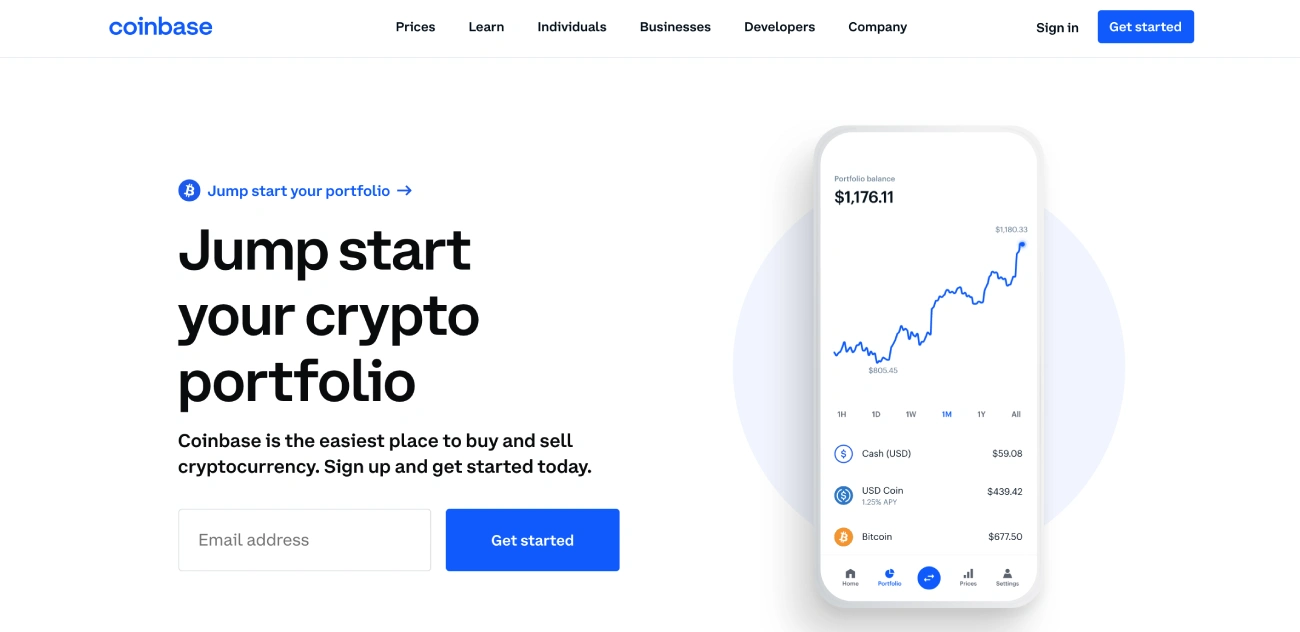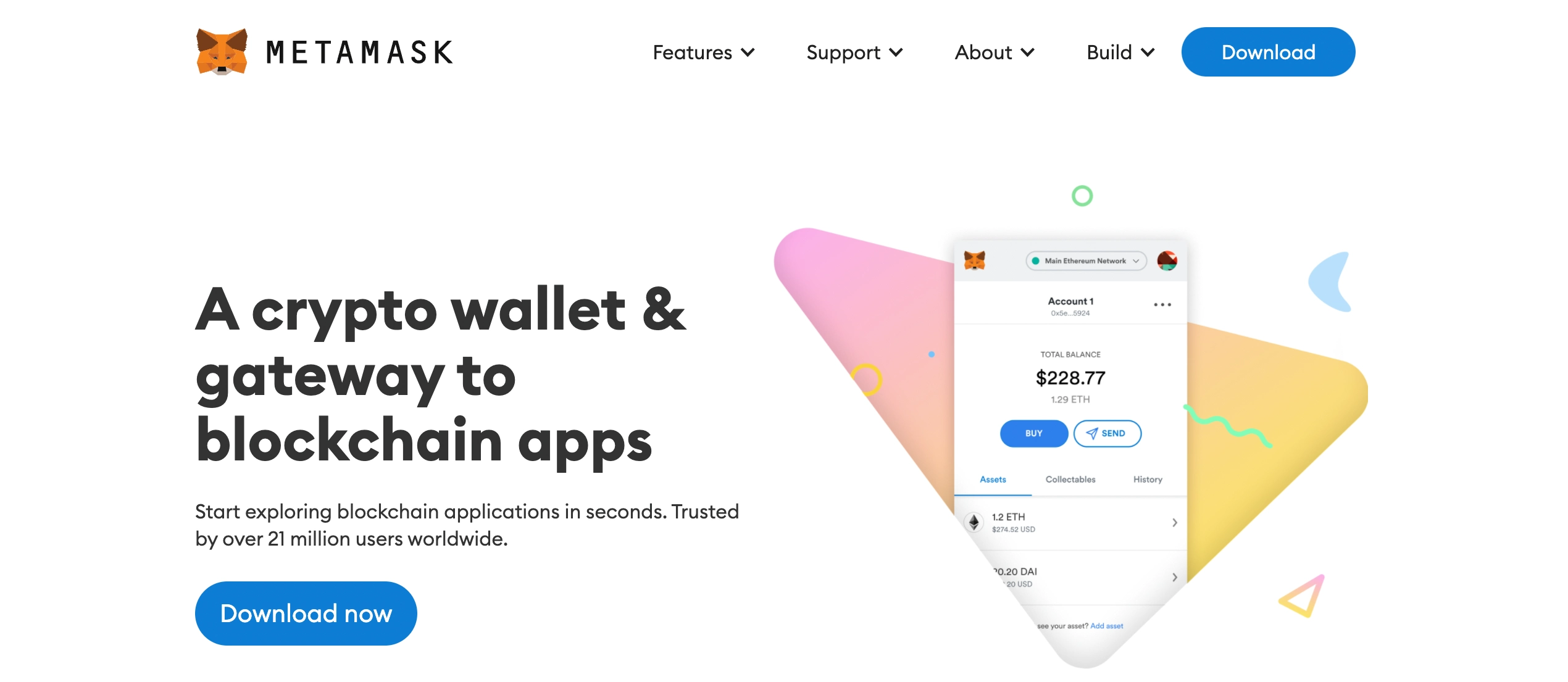Coinbase, the United States’ largest cryptocurrency exchange, announced a $430 million quarterly loss and a 19% plunge in monthly users in its first-quarter financial report.
The new rules set by SEC, the US Securities and Exchange Commission came as a surprise to millions of Coinbase users and gave rise to concerns about using the Coinbase platform.

Its earnings report for Tuesday, May 03, 2022 Coinbase reported that it had $256 billion of cryptocurrency and fiat currencies for clients.. But, it warned that any crypto assets in the custody of its clients could become subject to bankruptcy proceedings. Coinbase users would be deemed “generic unsecured creditors,” with no legal standing to demand any specific property from the exchange.
Coinbase advised that clients may lose any cryptocurrency they have saved if the crypto-exchange goes under.
Sounds scary right, but let’s hope that this won’t happen.
One of the key selling points emphasized by blockchain advocates worldwide is that an individual’s ownership of cryptocurrency is meant to be immutable and absolute.
Coinbase users can store cryptocurrency in either a Coinbase controlled wallet or a custodial bitcoin wallet. However, this implies users are giving up some control.
The private key that is used as a password to access a crypto wallet’s contents is an extended string of characters. The cryptocurrency in the wallet can’t be accessed without the key. Coinbase has the private key. Clients can access their funds by using a different password. This setup allows users to have easier access to their accounts, by using a shorter password. Coinbase will ultimately determine whether or not a customer can access these assets.
Coinbase CEO and founder Brian Armstrong stated on Twitter that the exchange faced “no risk of bankruptcy” and that the disclosure was required according to new regulations set by the U.S. Securities and Exchange Commission regarding public companies that hold digital assets on behalf of others.
Armstrong tweeted that “This disclosure makes sense in that these legal protections have not been tested in court for crypto assets specifically,” adding that it was possible, though unlikely, that a court would consider customer assets as part of the corporation in bankruptcy proceedings, even if it harmed customers.
A non-custodial digital wallet is the best way to store your assets. In this instance, you have complete control over all of your money and private keys. But, you have full control of your cryptocurrency and are ultimately responsible for protecting your assets.
Continue reading to find out more about non-custodial wallets and the reasons why digital assets should be stored in non-custodial wallets to keep your assets safe.
Let’s get started!
What’s Non-Custodial?
The non-custodial wallet for crypto is one that allows only the holder to access the wallet and have control of the private keys. For individuals that want total control over their funds, non-custodial wallets can be an excellent alternative. Because there are no intermediaries, you can directly trade cryptocurrency from your wallets. It’s an excellent choice for seasoned traders and investors who know how to manage and safeguard their private keys and seed phrases.

When using a decentralized exchange (DEX) or a decentralized application (DApp), you’ll need a non-custodial wallet. PancakeSwap is one of many popular decentralized platforms that requires a non-custodial account.
CoinStats is a non-custodial wallet provider. MetaMask and ZenGo are examples. Trust Wallet also offers these services. These wallets can be accessed by anyone, but you remain responsible for the safety of your seed phrases and private keys.
How to Transfer Money from a Custodial Account
Below are some benefits of cryptocurrency storage in a non custodial wallet
Asset Security
There is minimal to no risk of a remote hack because all data related to a user’s crypto wallet and its funds are under the user’s control. Because of their inherent security, many people are shifting away from custodial solutions for trading cryptocurrency and moving to decentralized exchanges (DEXs), which accept wallets other than those held by the Custodian.
Your Keys, your Coins
Because they offer high levels of autonomy and self-sovereignty, non-custodial wallets are gaining popularity. Users don’t need authorization from a third party to manage assets or conduct transactions. It is easy to send and receive crypto by having complete control of your private keys.
Get instant transactions
Non-custodial wallet transactions are faster, since they don’t require the authorization of any middlemen or centralized authority.
Compatibility DeFi
For most decentralized financial platforms, and for permissionless blockchain protocols, you will need a non-custodial account to interact with them. In recent years, the number of DeFi apps, such as DEXs and lending platforms, has risen dramatically.
Hardware and software wallets
The non-custodial wallets can be further divided into two types, hardware wallets or software wallets.
Non-Custodial Hardware Coin Wallets
These simple, non-custodial hardware pockets, also known as cold wallets or external drives, look just like an external drive and store your private keys offline. Accessing assets in non-custodial Hardware wallets requires that users plug them into their computers. Users then manually verify transactions using the device.
Hacks and computer viruses are not threats to hardware wallets. However, it is important that private keys be kept safe to minimize the chance of theft. Non-custodial physical wallets are the best choice for users who hold large quantities of crypto assets and those seeking long-term investments. Trezor, Ledger and Ledger have been the most widely used non-custodial Hardware wallets.
Non-Custodial Software Wallets
Non-custodial software wallets include web browser wallets and applications users can download to their PCs and mobile phones. These non-custodial wallets can access most public blockchains directly and only require users to give their passwords or private keys to unlock stored assets. Private keys are available online, which is different from cold wallets. Some examples include CoinStats and Metamask as well as AtomicDEX, which are non-custodial software accounts.
For those with large portfolios or who plan to stay out of bad markets, a non-custodial wallet may be the best choice. Users have the option to choose their favorite non-custodial software or hardware wallet based upon their investment preference.
Get CoinStats Wallet

CoinStats Wallet, a non-custodial digital wallet, supports over 8000 cryptocurrencies, as well many blockchain networks, including Bitcoin, Ethereum Mainnet (Polygon), Binance Smart Chain and Avalanche. Note:These are only the current networks available, and more will be added in due time!
This allows you to securely export your keys. It gives you total control over your DeFi and crypto assets.
CoinStats Wallet allows you to manage your DeFi, crypto assets, and buy them with your credit card. You can also swap with CoinStats for small swap fees.
If you are interested in trading on crypto exchanges actively, you can store your assets for the entire day. To ensure your safety, however, it is worth transferring your coins into a non-custodial account, like CoinStats Wallet.
Let’s get to the bottom
Best non-custodial wallets connect to a cryptocurrency exchange or blockchain. These wallets give you complete control of your keys and allow for minimal intervention by external parties. In addition to being more secure and eliminating third-party risk, non-custodial wallets provide you with access to more cryptocurrencies and let you buy cryptocurrency directly and trade anonymously.
To learn more about cryptocurrency exchanges and portfolio trackers as well as wallets, you can visit the CoinStats Blog. You also have access to our detailed buying guides for buying various cryptocurrencies such as How do I buy Defi Pulse Index? What is DeFi?, How do I Buy Cryptocurrency.
Some investment adviceThis website contains information that is intended to be informative. It does not recommend you to purchase, sell or hold any financial products or instruments. Information on this website is not based on any financial institution. It may be different from information you get from service providers.
Market risk can include the loss of principal. Because cryptocurrency can fluctuate and is sensitive to secondary activities, it’s important to do independent research, get advice and not invest in more than you can afford. CFD trading, stock trading, and cryptocurrency trading can present significant risk. CFDs can result in losses between 74-89% for retail investors accounts. It is important to consider all aspects of your financial situation before you make any investments. You should also verify the nature of any product or service (including its legal status and relevant regulatory requirements) and consult the relevant regulators’ websites before making any decision.